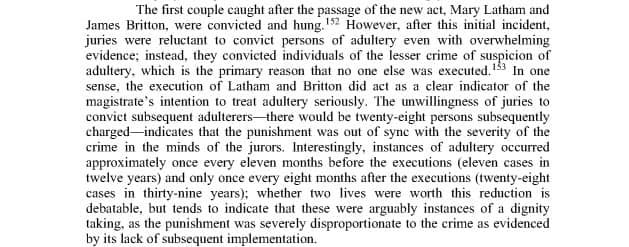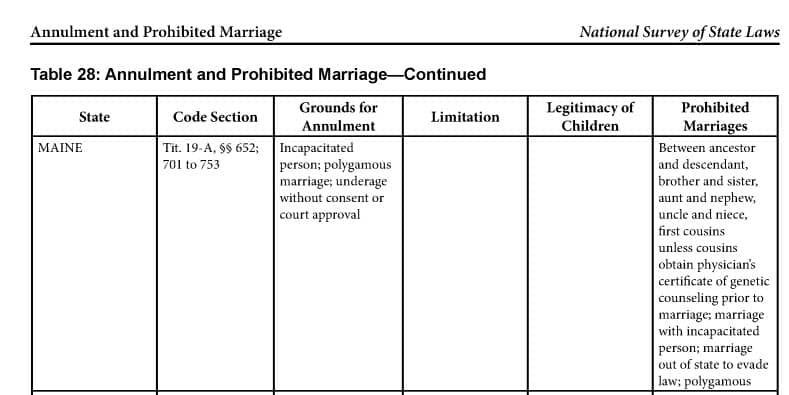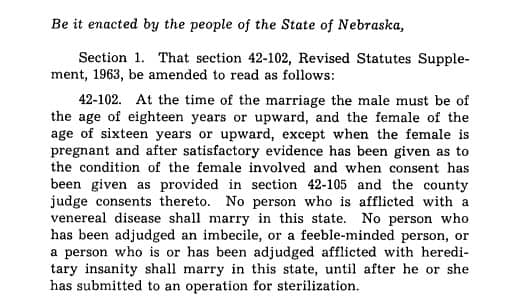Love is a many-splendored thing, but did you know that it’s also a thing of rules and regulations? Yes, love has its own set of laws, some of which are surprisingly absurd and quirky. If love is a crime, are you willing to serve the time? This Valentine’s Day, let’s delve into the lesser-known laws of love.
1. The Boy Is Mine
Did you know that adultery is a crime in 16 states? Although these laws are rarely enforced, especially after Lawrence v. Texas[1]Lawrence et al. v. Texas, 539 U.S. 558, 606 (2003). This case can be found in HeinOnline’s U.S. Supreme Court Library in 2003, they do in fact still exist.
If you have a hard time being faithful, we don’t recommend moving to Oklahoma. Here, you can be fined up to $500 and/or spend up to five years in prison[2]Oklahoma – 47th Legislature, 1st Regular Session, 1st Extraordinary Session. 1999 vol. 2 2328. This document can be found in HeinOnline’s Session Laws Library for adultery. If you live in Hawaii, North Carolina, Mississippi, New Mexico, or South Dakota, beware, for you might be liable for the failure of a marriage. In fact, in 2010, a scorned wife won $9 million in a lawsuit against her husband’s mistress.[3]Deborah L. Rhode, Adultery: An Agenda for Legal Reform, 11 Stan. J. C.R. & C.L. 179 (2015). This article can be found in HeinOnline’s Law Journal Library
On a more positive note, the only known execution for adultery[4]John Felipe Acevedo, Dignity Takings in the Criminal Law of Seventeenth-Century England and the Massachusetts Bay Colony, 92 CHI.-KENT L. REV. 743 (2017). This document can be found in HeinOnline’s Law Journal Library in American history dates back to colonial America in 1643 when Mary Latham and her extramarital lover, James Britton, were hung post-conviction.

2. If You Like It, Then You Should’ve Put a Ring On It
Valentine’s Day is one of the most popular days to propose. But, if you’re a male aged 16 or older in South Carolina, you better actually mean it. According to the law, if found guilty of seducing a woman under a promise to marry, you can be fined or imprisoned[5]South Carolina – General Assembly, General & Permanent Laws, Local & Temporary Laws, Regular Session. 1993 vol. 68 pts. 1 & 2, v. III 3229. This document can be found in HeinOnline’s Session Laws Library for no more than one year. It’s considered a misdemeanor.

For example, Bradley v. Somers[6]Christine Bradley, Respondent, v. David Somers, Appellant. 322 S.E.2d 665 (1984). This case can be found through HeinOnline’s integration with Fastcase back in 1984 was a case where David Somers proposed to Christine Bradley, but backed out the day of the wedding. Shortly after, Bradley became suicidal and obtained psychiatric treatment costing $3,000. In this case, Bradley was awarded $60,000[7]Recent Cases. 24 J. FAM. L. 117 (1985). This document can be found in HeinOnline’s Law Journal Library in damages for humiliation, mental anguish, expenses from the wedding, and more.
3. You Can’t Hurry Love, You Just Have to Wait
While in some states it is considered a criminal offense to marry your first cousin, in other states it is actually legal. In fact, 19 U.S. states allow marriage between first cousins. But, as we know, there are rules!
For example, in Utah, both parties must be 65 years of age, or 55 years and older with evidence that they are unable to reproduce.[8]Laws of Utah. 2019 Volume II 2071 (2019). Chapter 317. This document can be found in HeinOnline’s Session Laws Library Similar laws exist in Arizona, Indiana, and Wisconsin.
In Maine, the two individuals must obtain a certificate from a physician stating that they received genetic counseling.[9]Annulment and Prohibited Marriage, 9 National Survey of State Laws (Richard A. Leiter & Wendy Leiter, eds.) 533. This document can be found in HeinOnline’s National Survey of State Laws But even then, the state can deny the marriage.

4. I Got a Bad Case of Lovin’ You
No pill is going to cure this love-sick illness. In Nebraska, marriage is prohibited if the male is under the age of 18 and the female is under the age of 16. But that’s not all. Anyone who has a venereal disease, cannot be married in the state.[10]Nebraska – 73rd Legislature, Regular Session, 673 (1963). This document can be found in HeinOnline’s Session Laws Library

In Christensen v. Christensen,[11]Christensen v. Christensen. 14 N.W.2d 613 (1944). This document can be found in HeinOnline’s integration with Fastcase the husband, John M. Christensen, was seeking a divorce from his wife, Elsie Christensen, on the grounds that the marriage was never valid due to the fact that they both knew he had syphilis prior to getting married. Unfortunately for John, the marriage was not void. So folks, moral of the story, if you’re getting married in Nebraska, make sure you have all your paperwork (or tests) in order.
I Don’t Want to Miss a Thing
If you like comparing laws across the states, we recommend checking out National Survey of State Laws (NSSL). This is a must-have guide for state-by-state law comparison, available in both database and print format. Presented in an interactive chart format, NSSL allows users to make basic state-by-state comparisons of current state laws. The database is updated regularly as new laws are passed or updated.
The new 9th edition, along with the 8th, 7th, 6th, and 5th editions, are available in HeinOnline’s image-based, fully searchable, user-friendly database format. Users can use the database to compare the same laws as they existed in 2005, 2008, 2015, 2019, and 2022, and to make more current comparisons with laws added or updated in the database since the publishing of the most recent print edition.
Some of the latest chapters added include unclaimed dead bodies, beer law, and voter laws.
Everything We Do, We Do It for You
Look into our database, you will find, documents of all kinds. Search the journals, search case law, when you find them there, you’ll search no more. Don’t tell us you don’t want to read more. You can’t tell us we’re not worth subscribing for. Everything we write, we write it for you. Subscribe to the HeinOnline Blog for more (we promise we won’t serenade you anymore).
HeinOnline Sources[+]
| ↑1 | Lawrence et al. v. Texas, 539 U.S. 558, 606 (2003). This case can be found in HeinOnline’s U.S. Supreme Court Library |
|---|---|
| ↑2 | Oklahoma – 47th Legislature, 1st Regular Session, 1st Extraordinary Session. 1999 vol. 2 2328. This document can be found in HeinOnline’s Session Laws Library |
| ↑3 | Deborah L. Rhode, Adultery: An Agenda for Legal Reform, 11 Stan. J. C.R. & C.L. 179 (2015). This article can be found in HeinOnline’s Law Journal Library |
| ↑4 | John Felipe Acevedo, Dignity Takings in the Criminal Law of Seventeenth-Century England and the Massachusetts Bay Colony, 92 CHI.-KENT L. REV. 743 (2017). This document can be found in HeinOnline’s Law Journal Library |
| ↑5 | South Carolina – General Assembly, General & Permanent Laws, Local & Temporary Laws, Regular Session. 1993 vol. 68 pts. 1 & 2, v. III 3229. This document can be found in HeinOnline’s Session Laws Library |
| ↑6 | Christine Bradley, Respondent, v. David Somers, Appellant. 322 S.E.2d 665 (1984). This case can be found through HeinOnline’s integration with Fastcase |
| ↑7 | Recent Cases. 24 J. FAM. L. 117 (1985). This document can be found in HeinOnline’s Law Journal Library |
| ↑8 | Laws of Utah. 2019 Volume II 2071 (2019). Chapter 317. This document can be found in HeinOnline’s Session Laws Library |
| ↑9 | Annulment and Prohibited Marriage, 9 National Survey of State Laws (Richard A. Leiter & Wendy Leiter, eds.) 533. This document can be found in HeinOnline’s National Survey of State Laws |
| ↑10 | Nebraska – 73rd Legislature, Regular Session, 673 (1963). This document can be found in HeinOnline’s Session Laws Library |
| ↑11 | Christensen v. Christensen. 14 N.W.2d 613 (1944). This document can be found in HeinOnline’s integration with Fastcase |



